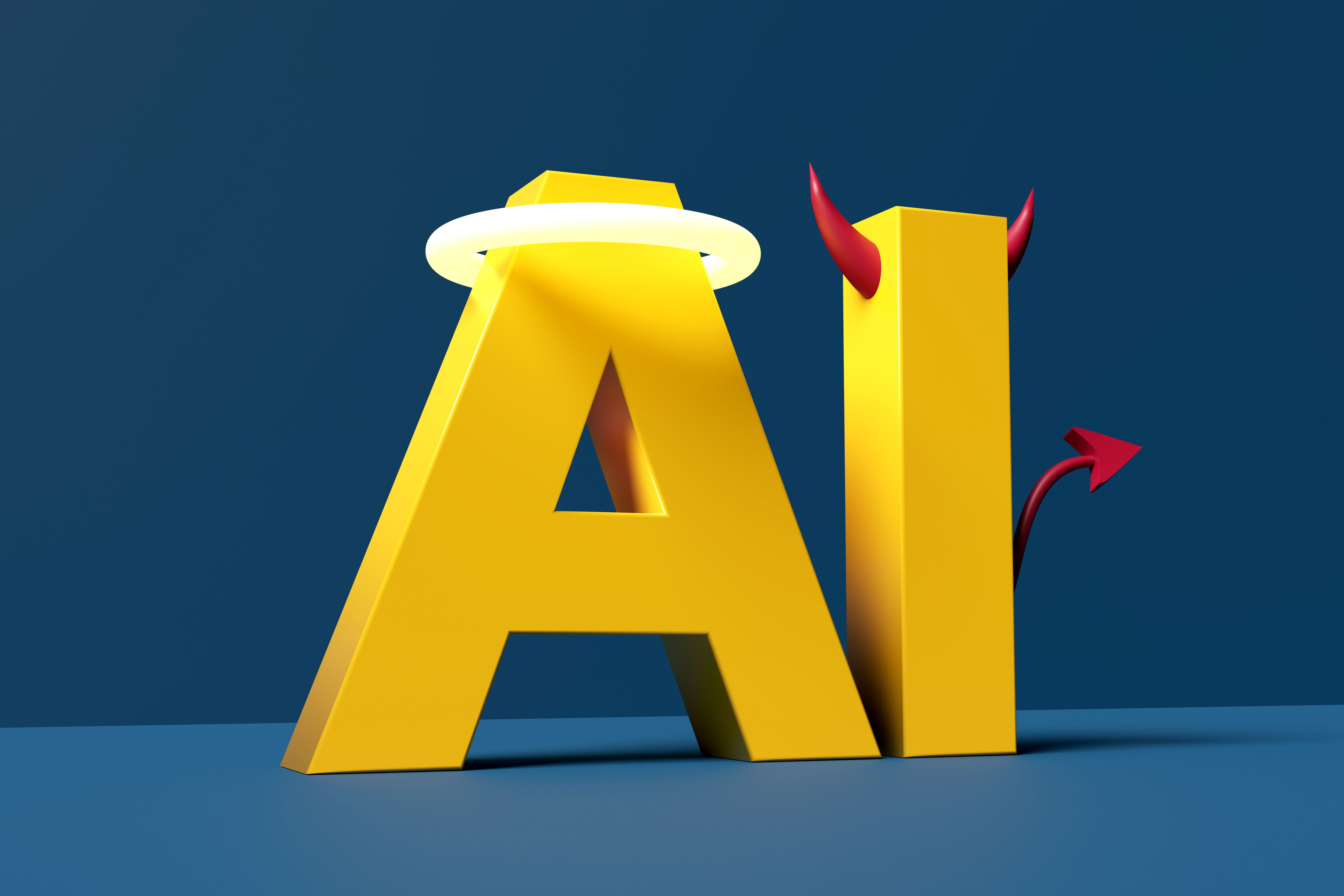AI Ethics: Walking the Boulevard of Innovation and Responsibility
Definition
AI ethics concern the standards of ethics in developing and using artificial intelligence. As artificial intelligence becomes a part of life, ethical considerations-not just those from stakeholders-fantasy or otherwise-from developers to end-users are knowingly creating innovations consistent with social value and causes no harm. Fairness, accountability, transparency, privacy, and sustainability are the core principles guiding AI ethics. Only through the constant dialogue between the various sectors of society-the technologists, policymakers, academics, and the lay public-can something of the balance between progress and responsibility be attempted.

Introduction
This development has also posed an important question of ethics to artificial intelligence, after a time that weighed more and is older in history over those constructions. As the technological spectrum keeps progressing rapidly and advancing to new territories, artificial intelligence has emerged very remarkably as a phenomenon that wants to see and facilitate landmark changes in a wide variety of profiles in life. This long list stretches wide and includes groundbreaking innovation in the vital healthcare sector, brings forth the latest self-driving cars promising to revolutionize transport, tailor-made marketing strategies ensuring individual services for specific consumer needs, and automates most customer service functions tailored for better efficiency and user experience. However, there is also a significant need for higher scrutiny and examination considering the ethical implications and responsibilities these applications hold within society.Of course, the RAFBOX Community is a thrilling place to discuss the ethics of technology; so it is perfectly the right context in which to consider where innovation in AI conflicts with ethical responsibility. Our march toward a sustainable future, by the way, might just need us to push forward on the examination of the ethics that inform innovation right along with moving forward toward more humane and just practices.
Part 1: The Thrilling Future of Artificial Intelligence Innovation1.1
The general and multifold industrial landscape
AI technologies unlock an unprecedented level of advancement, and their manifestations seep into and make all industries better:Health: the process of diagnosis will be much more accurate and correct; treatments will be tailored for each patient; in addition, most of the paperwork work associated with health care should become dramatically automated.Transportation: Self-driven cars-accidents would be much reduced, and accessibility much increased.Learning: AI would very well go on to be the game-changer for learning experiences in terms of personalization, making it uniquely tailored to every student's needs and requirements.This involved finance algorithmic trading and risk estimation models that focused on smart and optimal financial risk management.
1.2 Releasing the force of economic growth
Such new business models and efficiencies can revolutionize the whole economics world in global scenarios, but unlocking it comes with some of the greatest challenges and toughest questions for job losses, uneven access to technology, and right use cases.
Part 2: Perception regarding Ethical Questions on Artificial Intelligence
2.1 Principles of Ethics in Artificial Intelligence
Fairness: This smart machine must not practice bias against anyone; rather, it should contribute to the promotion of equity regarding diverse demographic groups.
Accountability: The developers, in association with the organization, should take responsibility for the AI systems they design and implement. Further, there is a need to develop such systems in an open manner so that their inner workings and functionalities are visible.
Transparency: The processes of AI made transparent to understand processes better and create trust by users.
Privacy: Every individual has the right of data privacy, which should be highly respected and followed in every corner where AI is being applied.
Sustainability: Artificial intelligence systems produced and used have to be of a nature that promotes the long-term survival of people and the environment.
2.2 Stakes in different contexts
Given the subject matter of AI ethics and its relevance, all discussion and debate should be made representative of a rich variety of different voices from other backgrounds and experiences. The RAFBOX Community should be reckoned as a quintessence of such democratic attitude since it allows, stimulates, and hence promotes constructive debates on the ethical development of artificial intelligence in practice. Upon integration of views through various stakeholders, the community will be able to tackle risks relating to AI proactively and more in advance.

Part 3: Ethical Issues: Artificial Intelligence System Development and Deployment
3.1 Prejudice and discrimination :This also leads to one area of criticism and concern related to artificial intelligence: it can also perpetuate existing biases present in the datasets the technology is based on, but may even exaggerate them. For instance, a high dependency on past data might inadvertently concentrate systemic inequity and feed into unjust and unfair outcomes across various applications of this technology.
3.2 Problem Statement of Privacy The analyses of such artificial intelligence systems reveal that they contain massive amounts of personal information, raising questions about the balance around all that amounts to consent and how it will not misuse all that information. Therefore, it becomes absolutely critical for such careful balance between achieving the operational efficiency of these systems and the privacy rights of the individuals.
3.3. Liability and Liabilities for Autonomous VehiclesSince choices made by artificial intelligence are becoming quite frequent and consequential, changing the larger picture of things like criminal justice and finance, it does become difficult to articulate accountibility in events of accidents or faults. So there is an urgent need for well-defined frameworks that can always depict responsibilities and outline lines regarding accountability in those instances.
Part 4: Solutions and Best Practices for Optimal Outcomes and Effective Implementation
4.1 Methodology for the Elaboration of Ethical Principles Section Organizations should strive at generic ethics policies exclusively concerned with AI development, and these must certainly be adhered to strictly. As part of each phase in the life cycle of every development along the path from the initial inception of the idea to the eventual deployment of the AI systems developed, the guidelines must be appropriately adapted to effectively inform and influence every decision that has to be made in the process.
4.2 Stakeholder interests different and variedSuch a discussion would include such a diverse group of stakeholders as ethicists who reflect on the ethical implications, technologists who know the technical side, policymakers who draft regulations, and the community that is impacted by these developments so that the conversation would be much more substantial and nourishing in terms of content and perspectives. Community of RAFBOX exactly offers such valuable opportunity for significant contributions and crucial input that leads to a deeper subjective insight into the ambitions of artificial intelligence and the necessary ethical safeguards that could and should be laid down.
4.3 Accountability MechanismsAccountability, in a very critical way, is the keystone that makes the organizations accountable to the tremendous impacts and consequences artificial intelligence initiatives can bring about to society and among various stakeholders involved. Such accountability can take different forms, such as third-party audits to ensure an objective assessment of AI activities. Moreover, very important for these are the ethical review boards designed and created specifically for such; these boards will play an essential role in continuing adherence to what are to be adopted standards and principles. It is on these standards and principles that safe and responsible use of AI technology will have to be guided and monitored.
Frequently Asked Questions with the RAFBOX Community
Q1: Why does ethics in AI matter?
A1: AI ethics is extremely pertinent in an attempt to ensure that AI technologies will develop and be applied in ways as much as possible to advance justice, equality, and transparency while minimizing risks associated with bias, privacy violations, and accountability issues.
Q2. How can one ensure that an organization's AI system acts fairly?
A2:Organizations should continually conduct robust auditing as well as objective review at all stages of the development process of AI. This would be in addition to utilizing as much diversity as possible in the data sets and engaging actively, seeking views from stakeholders, which would eventually translate into fair and equitable outcomes for AI.
Q3: What is the particular contribution of RAFBOX Community to the AI in ethics?
A3. RAFBOX Community: It will be a way of conducting positive discussion on the proper usage of AI and mobilizing all users to discuss responsibilities, experiences, and develop the overall ethics standards.
Q4: How can someone become involved in the ethical concerns and considerations surrounding the use of artificial intelligence?
A4: This provides an opportunity for individuals to engage proactively with forums of communities around them, and to be part of advocacy groups as well as join educational programs that touch upon the imperative subject of AI ethics. In this way, they will share precious insights and pertinent perspectives toward the issues and discussions engaging within the RAFBOX Community.
Q5: What is the book that everyone should read if they are interested in learning more about AI ethics?A5: Books, academic journals and on-line Web sites related to studies on the subject of AI and ethics, and those available at the RAFBOX Community will be a good place to start.
Conclusion: The Future Way Ahead
Coalescence of the diverse stakeholders who represent a wide range of perspectives and backgrounds in such forums and platforms as the RAFBOX Community offers a rich opportunity for mutual engagement, sharing unique needs, and priorities. This collective effort is thus very crucial to make the development of just, fair, and responsible artificial intelligence systems a reality while contributing at the same time to finally benefiting all involved from the cutting-edge innovation it entails. This would only happen if continued and ongoing dialogues with the purpose of attempting to find meaning to this intricate and complex landscape that continues to surround AI ethics ensured that our technological progress and advancement came within the service of our collective moral compass and value system as society.
Hashtags
#rafbox #AIEthics #ArtificialIntelligence #Innovation #Responsibility #EthicalAI #Accountability #DataPrivacy #FairnessInAI #TechForGood #ResponsibleTech #AIandSociety #SustainableAI #AIWithIntegrity #CommunityEngagement #MindfulInnovation #TechEthics #TransparencyInAI #FutureOfWork #InclusiveTech #AIForEveryone #SocialGoodWithAI #HumanCenteredAI #DiversityInAI #OpenDialogue #EthicsInTech #AIDevelopment #EthicalGuidelines #TechAccountability #AIResponsibility #EthicsInAI #AIInnovation #TechWithPurpose #AICommunity #CollaborationInAI #CivicTech #AIForHumanity #PublicTrustInAI #EmpoweredCommunities #SocialImpact #TechnologyAndEthics #DigitalResponsibility #ConsciousTech



